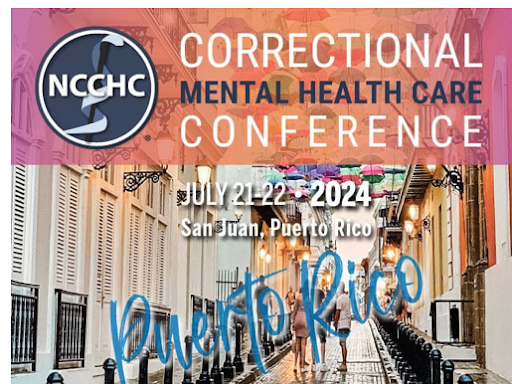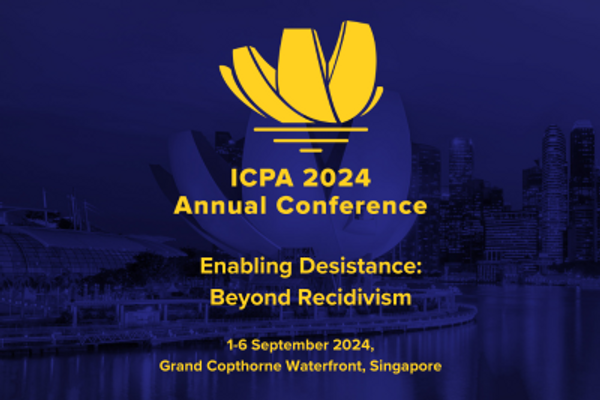
We've compiled top highlights from recent research, policy, and practice resources across the world for our latest IACFP International News summary. Our topics for March and April, 2024 include IACFP updates; member access to SAGE Journals; recent research, policy, and practice; and upcoming conferences.
1. IACFP Updates
-
Student Research Award Application Process Open
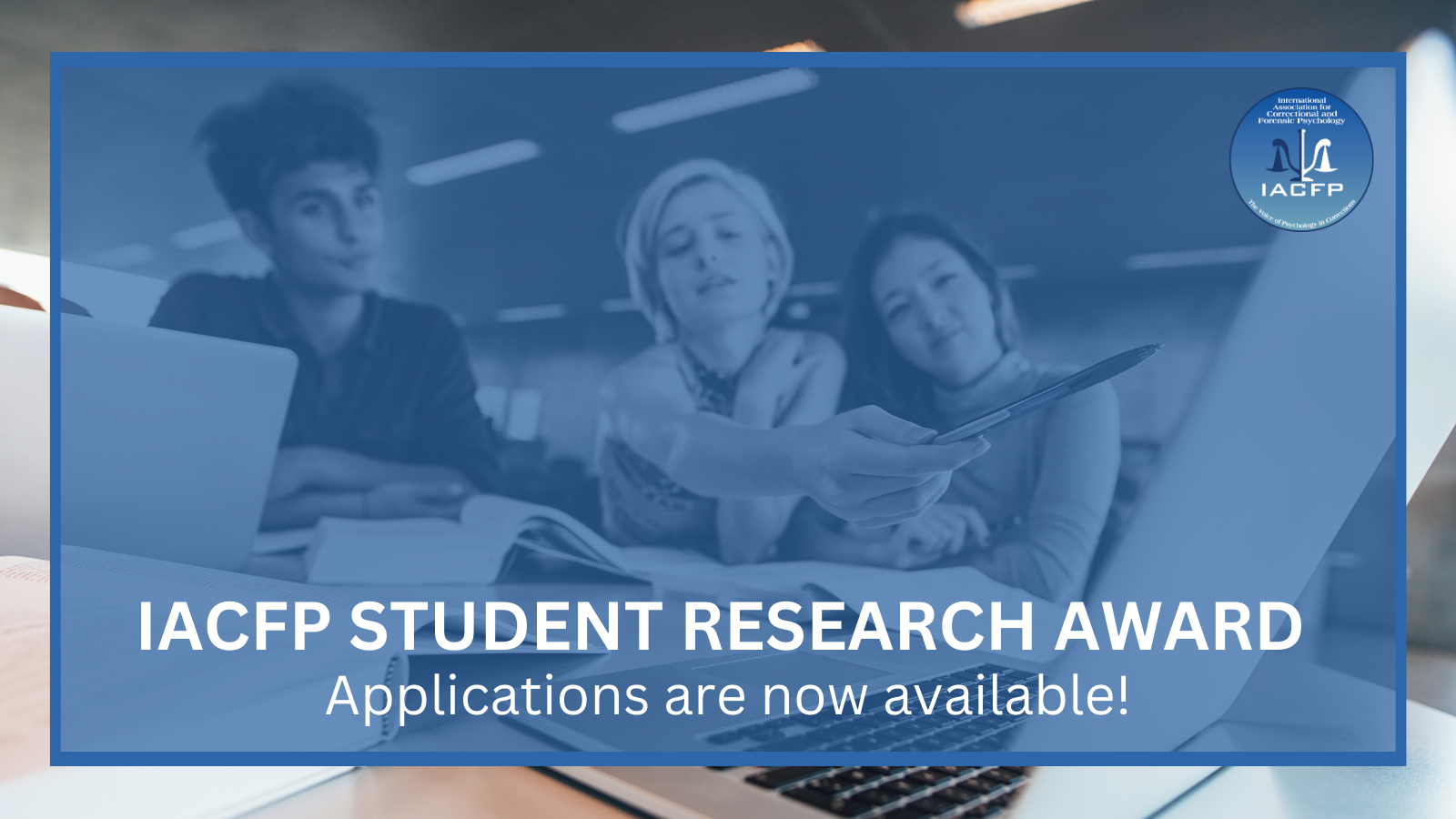 The IACFP believes that rigorous scholarship provides the foundation to continue advancing our understanding of criminology and the justice system. To that end, we invite student researchers to apply for the IACFP Student Research Award, which offers two awards of $2500 each to pursue a relevant project. The application is due by Friday, May 17.
The IACFP believes that rigorous scholarship provides the foundation to continue advancing our understanding of criminology and the justice system. To that end, we invite student researchers to apply for the IACFP Student Research Award, which offers two awards of $2500 each to pursue a relevant project. The application is due by Friday, May 17.
Click here to learn more about the Student Research Award and submit an application. -
50th Anniversary of Criminal Justice and Behavior
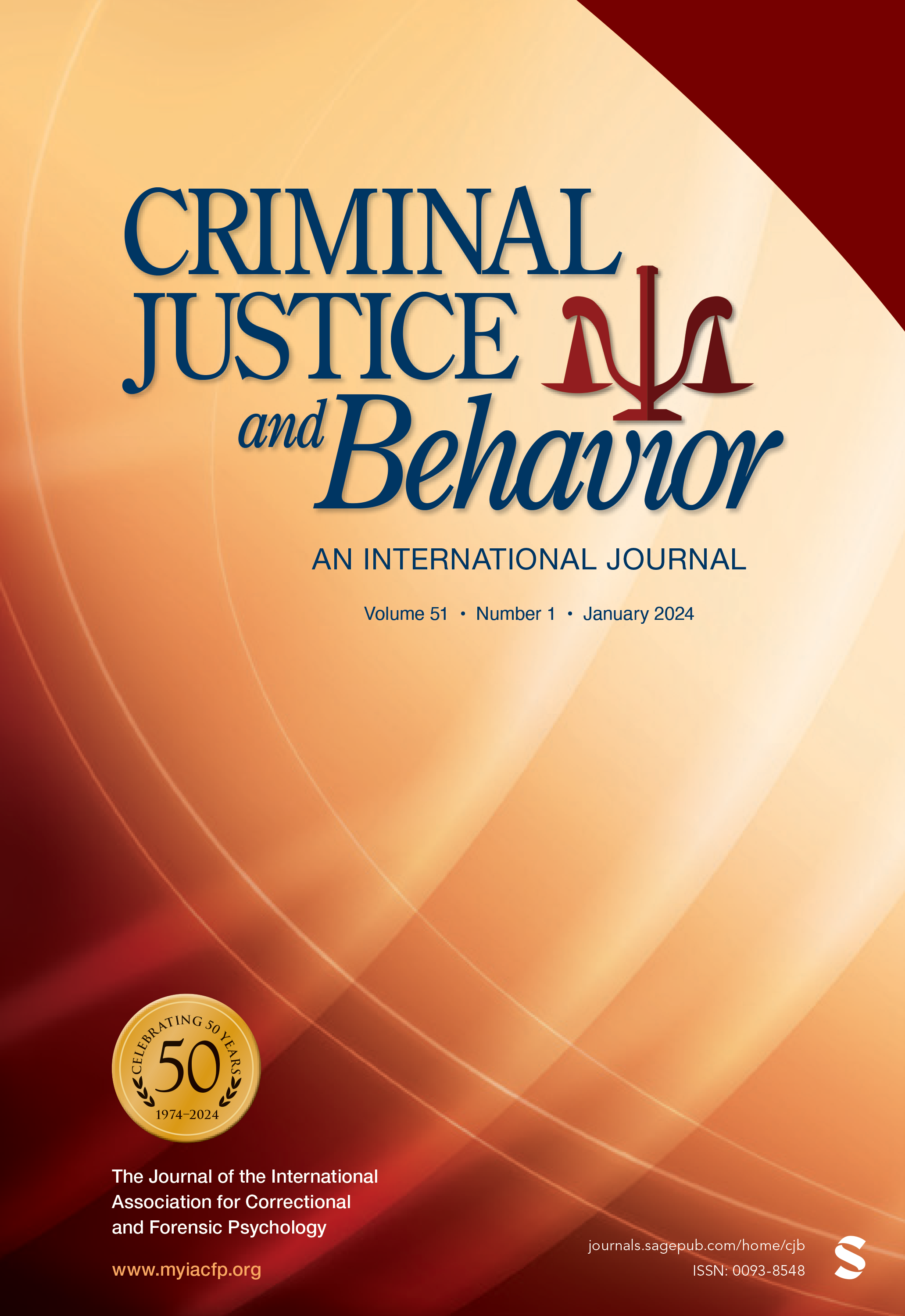 To celebrate the 50th anniversary of the publication of Criminal Justice and Behavior, the IACFP Board has partnered with SAGE Publishing to make one article of each monthly issue accessible for free to everyone. CJB editor-in-chief Dr. Kristy Holtfreter chooses each month’s article to be included on the Sage Journals “Collections” page, which will then remain available throughout 2024!
To celebrate the 50th anniversary of the publication of Criminal Justice and Behavior, the IACFP Board has partnered with SAGE Publishing to make one article of each monthly issue accessible for free to everyone. CJB editor-in-chief Dr. Kristy Holtfreter chooses each month’s article to be included on the Sage Journals “Collections” page, which will then remain available throughout 2024!
The March 2024 free access article is “Incremental Validity of MMPI-3 and NEO PI-3 Scores in Public Safety Candidate Pre-employment Psychological Evaluations” by Megan R. Whitman, Kaci Holmes, Laura Sue Elias, Bruce M. Capp, and Yossef S. Ben-Porath. The April 2024 free access article is “Predicting Future Recidivism From Changes in School Grades and Moral Agency” by Glenn D. Walters.
2. Research
- Provincial and Territorial Correctional Service Workers: A Canadian National and Jurisdictional Assessment of Mental Health
This article, published in the Journal of Criminal Justice, Volume 91 (2024), is authored by R. Ricciardelli, R.N. Carleton, T.L. Taillieu, S. Dorniani, M.S. Johnston, M. Carbonell, R. Coulling, E. Andres, and T.O. Afifi. As noted in the abstract, correctional workers (in a broad array of job titles) from all 13 provincial and territorial services across Canada self-selected to complete an online mental health and well-being survey. “The current results suggest provincial and territorial CWs report mental health challenges much more frequently than the diagnostic prevalence for the general public (10.1%) and need additional supports. Unexpectedly there were absent elevations associated with data collected after the onset of COVID-19.”
The study illustrates yet more reason to invest in and support those who work in all facets of corrections. - Character, Circumstances, and Criminal Careers: Towards a Dynamic Developmental and Life-Course Criminology
 The Centre for Analytic Criminology has announced the publication of its latest book, analyzing data from the longitudinal Peterborough Adolescent and Young Adult Development Study (PADS+) and testing Situational Action Theory (SAT). The authors are Per-Olof H. Wikstrom, Kyle Treiber, and Gabriela D. Roman
The Centre for Analytic Criminology has announced the publication of its latest book, analyzing data from the longitudinal Peterborough Adolescent and Young Adult Development Study (PADS+) and testing Situational Action Theory (SAT). The authors are Per-Olof H. Wikstrom, Kyle Treiber, and Gabriela D. Roman
The book seeks to answer two questions:
1. Why Why do young people engage in acts of crime?
2. What is it that drives their criminal careers?
For those practitioners working with adolescents and young adults within the criminal justice system and community corrections, the results may be especially informative.
As noted on the University of Cambridge website, “This book makes the case for a more dynamic Developmental and Life Course criminology (DLC), theorising and exploring the relationship between personal characteristics and environmental features and their changes across a critical developmental period for criminal careers: adolescence into young adulthood. It presents advanced statistical analyses of crime trajectories and their association with patterns of development and personal experiences, and examines whether childhood predictors, such as social disadvantage and social adversity, are linked to future trajectories of crime. It presents a special analysis of the age-crime curve and its explanation. It also provides the most recent and updated statement of Situational Action Theory (SAT) and its Developmental Ecological Action (DEA) model, including comparisons between the basic assumptions and propositions of SAT and selected major criminological theories.”
3. Practice
- Correctional Rehabilitation and Psychological Interventions in Singapore
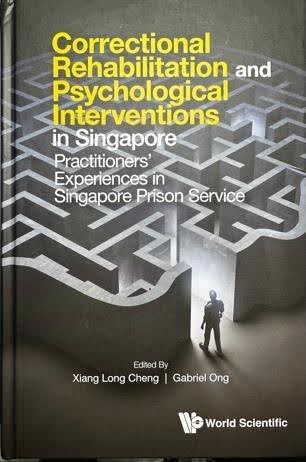 A new book, Correctional Rehabilitation and Psychological Interventions in Singapore: Practitioners’ Experiences in Singapore Prison Service, edited by Xiang Long Cheng and Gabriel Ong, was recently published by World Scientific Publishing Co. It is an excellent resource for practitioners, since SPS takes an evidence-based approach and references international best practices in its intervention work.
A new book, Correctional Rehabilitation and Psychological Interventions in Singapore: Practitioners’ Experiences in Singapore Prison Service, edited by Xiang Long Cheng and Gabriel Ong, was recently published by World Scientific Publishing Co. It is an excellent resource for practitioners, since SPS takes an evidence-based approach and references international best practices in its intervention work.
The book is divided into three sections:- The first section focuses on the theories and models that inform SPS’ approach towards rehabilitation.
- The second section provides an overview and eight chapters on working with special populations. It includes SPS’ work with high-risk offenders, drug abusers, young offenders, women offenders, adult violent offenders, sexual offenders, and those with mental health issues.
- The final section consists of two chapters that focus on the training that has been provided to specialists, psychologists, and front-line correctional staff to prepare them to be a part of correctional rehabilitation. This includes not only their roles in transforming environments but also investment in their own well-being.
This is an excellent and practical resource for practitioners. -
Police-Mental Health Collaborations
The Council of State Governments Justice Center has been involved in supporting the development of collaborative efforts between law enforcement, other governmental organizations, NGOs, and mental health service providers for a number of years. In an effort to address the increasing numbers of individuals with significant mental health needs being drawn into the criminal justice system, they have worked with several local communities to formalize their work for replication. In March 2024, Police-Mental Health Collaborations: Implementing Effective Law Enforcement Responses for People Who Have Mental Health Needs—The Project Coordinator’s Handbook was published, and is now available here. The handbook is a guide for those who are planning, implementing, and investing in quality improvement of a community’s efforts to meet the needs of this distinct population.
4. Upcoming Conferences
- 2024 IAFMHS Conference, June 18-20, 2024
The upcoming annual conference of the International Association of Forensic Mental Health Services (IAFMHS) will be taking place in San Francisco, CA from June 18-20, centered around the topic “Prevention in Forensic Mental Health.” More information can be found here.
- EAPL 2024 Annual Conference of European Association of Psychology and Law, July 9-12, 2024
The 2024 annual conference of the European Association of Psychology and Law will be held in Caparica, Portugal on July 9-12, 2024. The theme of the conference is “New Challenges in Research and Practice.” More information can be found here.
- Correctional Mental Health Care Conference, July 21, 2024
Two days of information laser-focused on correctional mental health care issues: juvenile, substance abuse, suicide prevention, trauma, self-care, and more…plus the opportunity to take the CCHP and specialty exams on-site.
More information on this event can be found here.
- ICPA 2024 Annual Conference, September 1-6, 2024
Make plans now to attend the ICPA Annual Conference in Singapore, and to participate in the special 20th Anniversary events for the Yellow Ribbon Project. More information can be found here.



